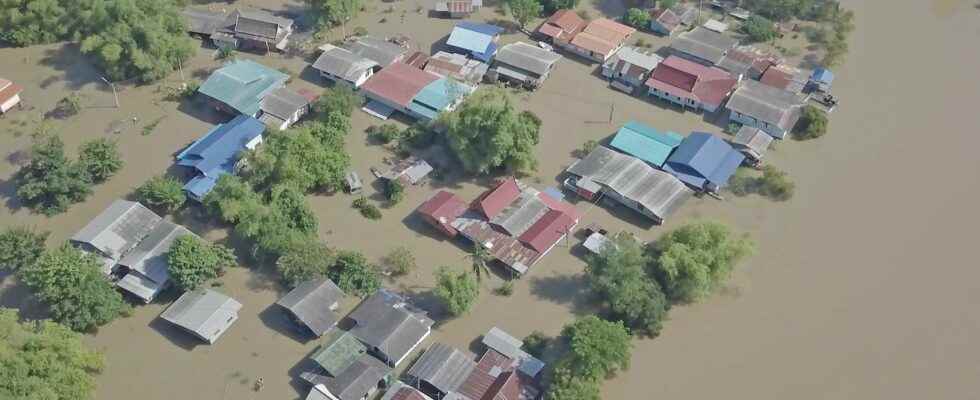You will also be interested
[EN VIDÉO] How to deal with natural disasters? Every year many natural disasters ravage the countries of the South. Unfortunately, with the few means available, the management of these states of crisis is often problematic. Sébastien Hardy, geographer of the IRD (Research Institute for Development) talks to us during this video about the solutions envisaged by the organization to deal with the problem.
The Durban area is currently in the middle of autumn, and at this time it is not uncommon for the area to experience weather report extremes with significant rainfall: this is one of the times of the year when the risk of bad weather is greatest there. However, the depression which affected the east coast between 11 and 12 April last had historic consequences: the equivalent of 6 months of precipitation fell in the space of two days in the Durban region, i.e. 450 mm, due to a cold dropa stall ofair polar like those we regularly experience in Europe.
It is this same type of phenomenon, the intensity of which is always difficult to predict, which had caused the gigantic deadly floods in Germany in July 2021.
The biggest disaster for 60 years
This type of cold air stall occurs regularly in the spring in the southern hemisphere, and particularly in April towards Durban, but not in such dramatic proportions. This stationary depression caused a sudden rise in water levels, accompanied by mudslides and landslides.
The meteorologists on site had predicted bad weather, but the phenomenon was ultimately much stronger than announced. It is the worst natural disaster to hit KwaZulu-Natal province in at least 60 years.
After a lull on Thursday and Friday, new rains, in the form of showers, are expected this weekend, but without any common measure with those which caused the disaster.
Interested in what you just read?
